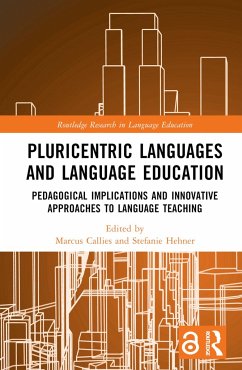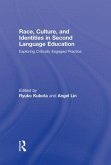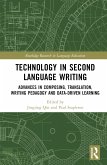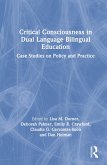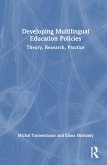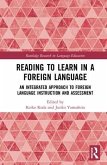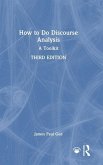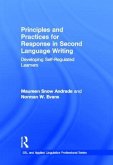Pluricentric Languages and Language Education
Pedagogical Implications and Innovative Approaches to Language Teaching
Herausgeber: Callies, Marcus; Hehner, Stefanie
Pluricentric Languages and Language Education
Pedagogical Implications and Innovative Approaches to Language Teaching
Herausgeber: Callies, Marcus; Hehner, Stefanie
- Gebundenes Buch
- Merkliste
- Auf die Merkliste
- Bewerten Bewerten
- Teilen
- Produkt teilen
- Produkterinnerung
- Produkterinnerung
This book maps out the pedagogical implications of the global spread and diversification of pluricentric languages for language education and showcases new approaches that can take account of linguistic diversity.
Andere Kunden interessierten sich auch für
![Race, Culture, and Identities in Second Language Education Race, Culture, and Identities in Second Language Education]() Race, Culture, and Identities in Second Language Education230,99 €
Race, Culture, and Identities in Second Language Education230,99 €![Technology in Second Language Writing Technology in Second Language Writing]() Technology in Second Language Writing160,99 €
Technology in Second Language Writing160,99 €![Critical Consciousness in Dual Language Bilingual Education Critical Consciousness in Dual Language Bilingual Education]() Critical Consciousness in Dual Language Bilingual Education165,99 €
Critical Consciousness in Dual Language Bilingual Education165,99 €![Developing Multilingual Education Policies Developing Multilingual Education Policies]() Michal TannenbaumDeveloping Multilingual Education Policies167,99 €
Michal TannenbaumDeveloping Multilingual Education Policies167,99 €![Reading to Learn in a Foreign Language Reading to Learn in a Foreign Language]() Reading to Learn in a Foreign Language187,99 €
Reading to Learn in a Foreign Language187,99 €![How to Do Discourse Analysis How to Do Discourse Analysis]() James Paul GeeHow to Do Discourse Analysis189,99 €
James Paul GeeHow to Do Discourse Analysis189,99 €![Principles and Practices for Response in Second Language Writing Principles and Practices for Response in Second Language Writing]() Maureen Snow AndradePrinciples and Practices for Response in Second Language Writing187,99 €
Maureen Snow AndradePrinciples and Practices for Response in Second Language Writing187,99 €-
-
-
This book maps out the pedagogical implications of the global spread and diversification of pluricentric languages for language education and showcases new approaches that can take account of linguistic diversity.
Hinweis: Dieser Artikel kann nur an eine deutsche Lieferadresse ausgeliefert werden.
Hinweis: Dieser Artikel kann nur an eine deutsche Lieferadresse ausgeliefert werden.
Produktdetails
- Produktdetails
- Verlag: Taylor & Francis
- Seitenzahl: 224
- Erscheinungstermin: 29. November 2022
- Englisch
- Abmessung: 234mm x 156mm x 14mm
- Gewicht: 517g
- ISBN-13: 9781032156965
- ISBN-10: 1032156961
- Artikelnr.: 65614850
- Herstellerkennzeichnung
- Libri GmbH
- Europaallee 1
- 36244 Bad Hersfeld
- gpsr@libri.de
- Verlag: Taylor & Francis
- Seitenzahl: 224
- Erscheinungstermin: 29. November 2022
- Englisch
- Abmessung: 234mm x 156mm x 14mm
- Gewicht: 517g
- ISBN-13: 9781032156965
- ISBN-10: 1032156961
- Artikelnr.: 65614850
- Herstellerkennzeichnung
- Libri GmbH
- Europaallee 1
- 36244 Bad Hersfeld
- gpsr@libri.de
Marcus Callies is Professor and Chair of English Linguistics, University of Bremen, Germany. Stefanie Hehner is a doctoral candidate in the research project "Varieties of English in Foreign Language Teacher Education", University of Bremen, Germany.
1. Introduction: Pluricentric Languages and Language Education -
Implications and Innovations Part I: Pluricentricity and Language Teaching:
Addressing a Conceptual Interface 2. Pluricentric Languages and the
Teaching of Spanish and French: Strengthening Disciplinary Links 3.
Integrating Linguistic Diversity into English Language Teaching: Challenges
in Implementing a Pluricentric Approach 4. Transfering Pluricentric
Approaches from the Teaching of Portuguese and Vietnamese: A Comparative
Approach to Dealing with Dialectal Variation in School Languages Part II:
Pluricentric Languages and Aspects of Linguistic Variation in Language
Education: Awareness, Beliefs, and Attitudes 5. Moving from Awareness and
Understanding to Tolerance and Promotion? On Spanish Teacher Students'
Knowledge of and Attitudes Towards Language Variation 6. Pre-service
Teachers and Their Awareness of Varieties of Spanish 7. Specific
Preferences vs. Inclusive Foreign Language Education: (Pre-service)
Teachers' Implicit Attitudes Towards Varieties of English 8. Encounters
with Englishes: Language Learning Biographies as a Window to Teacher
Students' Cognitions 9. Creating Awareness of Pluricentricity at University
Language Departments: A Case Study of Dutch Part III: New Approaches to
Teaching and Learning Pluricentric Languages 10. German as a Pluricentric
Language in Teacher Education at the Universities of Rio de Janeiro 11.
Language Corpora and the Teaching and Learning of English as an
International Language 12. Pluricentric Language Teaching and World
Englishes-informed Curriculum Design for Teacher Training Programs 13.
Pluricentric Languages in University Teacher Education: Towards Increased
Curricular Coherence Afterword: Who Is Afraid of Pluricentric Perspectives?
Implications and Innovations Part I: Pluricentricity and Language Teaching:
Addressing a Conceptual Interface 2. Pluricentric Languages and the
Teaching of Spanish and French: Strengthening Disciplinary Links 3.
Integrating Linguistic Diversity into English Language Teaching: Challenges
in Implementing a Pluricentric Approach 4. Transfering Pluricentric
Approaches from the Teaching of Portuguese and Vietnamese: A Comparative
Approach to Dealing with Dialectal Variation in School Languages Part II:
Pluricentric Languages and Aspects of Linguistic Variation in Language
Education: Awareness, Beliefs, and Attitudes 5. Moving from Awareness and
Understanding to Tolerance and Promotion? On Spanish Teacher Students'
Knowledge of and Attitudes Towards Language Variation 6. Pre-service
Teachers and Their Awareness of Varieties of Spanish 7. Specific
Preferences vs. Inclusive Foreign Language Education: (Pre-service)
Teachers' Implicit Attitudes Towards Varieties of English 8. Encounters
with Englishes: Language Learning Biographies as a Window to Teacher
Students' Cognitions 9. Creating Awareness of Pluricentricity at University
Language Departments: A Case Study of Dutch Part III: New Approaches to
Teaching and Learning Pluricentric Languages 10. German as a Pluricentric
Language in Teacher Education at the Universities of Rio de Janeiro 11.
Language Corpora and the Teaching and Learning of English as an
International Language 12. Pluricentric Language Teaching and World
Englishes-informed Curriculum Design for Teacher Training Programs 13.
Pluricentric Languages in University Teacher Education: Towards Increased
Curricular Coherence Afterword: Who Is Afraid of Pluricentric Perspectives?
1. Introduction: Pluricentric Languages and Language Education -
Implications and Innovations Part I: Pluricentricity and Language Teaching:
Addressing a Conceptual Interface 2. Pluricentric Languages and the
Teaching of Spanish and French: Strengthening Disciplinary Links 3.
Integrating Linguistic Diversity into English Language Teaching: Challenges
in Implementing a Pluricentric Approach 4. Transfering Pluricentric
Approaches from the Teaching of Portuguese and Vietnamese: A Comparative
Approach to Dealing with Dialectal Variation in School Languages Part II:
Pluricentric Languages and Aspects of Linguistic Variation in Language
Education: Awareness, Beliefs, and Attitudes 5. Moving from Awareness and
Understanding to Tolerance and Promotion? On Spanish Teacher Students'
Knowledge of and Attitudes Towards Language Variation 6. Pre-service
Teachers and Their Awareness of Varieties of Spanish 7. Specific
Preferences vs. Inclusive Foreign Language Education: (Pre-service)
Teachers' Implicit Attitudes Towards Varieties of English 8. Encounters
with Englishes: Language Learning Biographies as a Window to Teacher
Students' Cognitions 9. Creating Awareness of Pluricentricity at University
Language Departments: A Case Study of Dutch Part III: New Approaches to
Teaching and Learning Pluricentric Languages 10. German as a Pluricentric
Language in Teacher Education at the Universities of Rio de Janeiro 11.
Language Corpora and the Teaching and Learning of English as an
International Language 12. Pluricentric Language Teaching and World
Englishes-informed Curriculum Design for Teacher Training Programs 13.
Pluricentric Languages in University Teacher Education: Towards Increased
Curricular Coherence Afterword: Who Is Afraid of Pluricentric Perspectives?
Implications and Innovations Part I: Pluricentricity and Language Teaching:
Addressing a Conceptual Interface 2. Pluricentric Languages and the
Teaching of Spanish and French: Strengthening Disciplinary Links 3.
Integrating Linguistic Diversity into English Language Teaching: Challenges
in Implementing a Pluricentric Approach 4. Transfering Pluricentric
Approaches from the Teaching of Portuguese and Vietnamese: A Comparative
Approach to Dealing with Dialectal Variation in School Languages Part II:
Pluricentric Languages and Aspects of Linguistic Variation in Language
Education: Awareness, Beliefs, and Attitudes 5. Moving from Awareness and
Understanding to Tolerance and Promotion? On Spanish Teacher Students'
Knowledge of and Attitudes Towards Language Variation 6. Pre-service
Teachers and Their Awareness of Varieties of Spanish 7. Specific
Preferences vs. Inclusive Foreign Language Education: (Pre-service)
Teachers' Implicit Attitudes Towards Varieties of English 8. Encounters
with Englishes: Language Learning Biographies as a Window to Teacher
Students' Cognitions 9. Creating Awareness of Pluricentricity at University
Language Departments: A Case Study of Dutch Part III: New Approaches to
Teaching and Learning Pluricentric Languages 10. German as a Pluricentric
Language in Teacher Education at the Universities of Rio de Janeiro 11.
Language Corpora and the Teaching and Learning of English as an
International Language 12. Pluricentric Language Teaching and World
Englishes-informed Curriculum Design for Teacher Training Programs 13.
Pluricentric Languages in University Teacher Education: Towards Increased
Curricular Coherence Afterword: Who Is Afraid of Pluricentric Perspectives?

